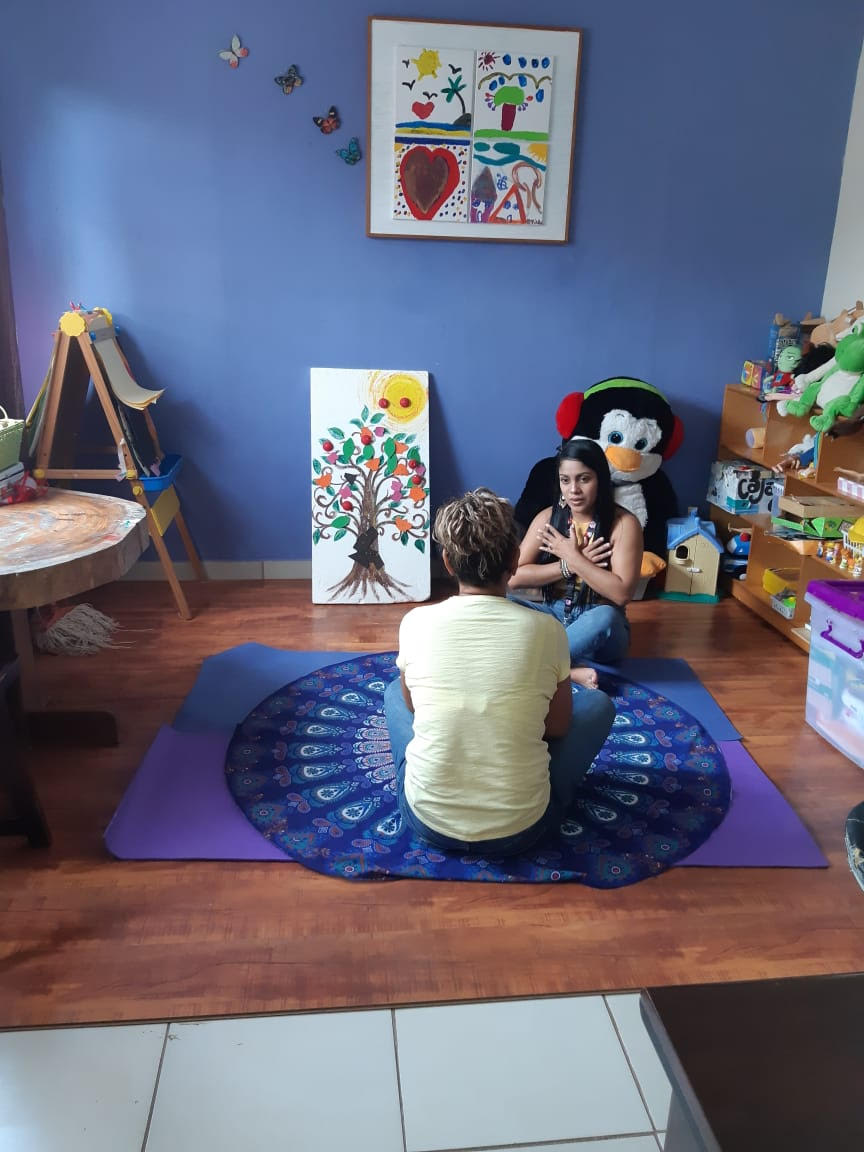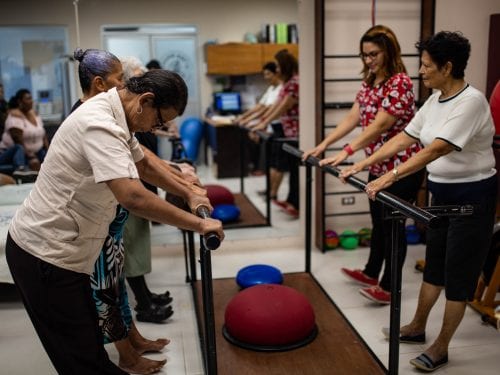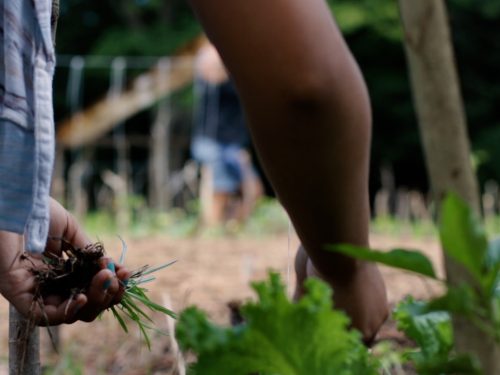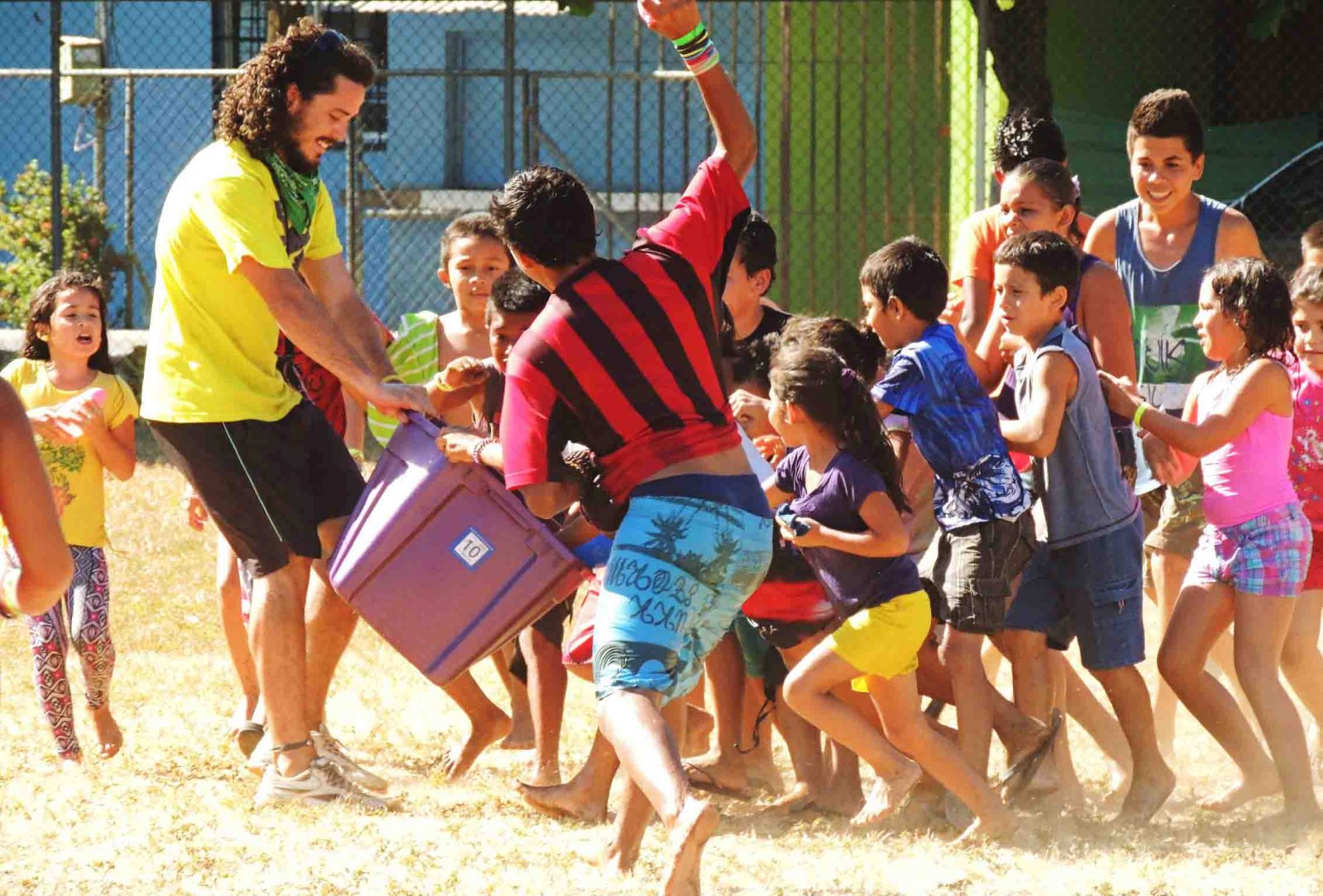
Belkis Gutierrez used to work taking care of children, but she lost her job due to the COVID-19 stay-at-home measures. This led her to experience something she had never suffered before: stress and anxiety due to unemployment and the uncertainty of the last six months, not knowing when this pandemic will end.
The Guanacastecan found psychological support from the non-profit organization CEPIA, located in Huacas of Santa Cruz, where she was able to have an appointment with psychologist Patricia Leon.
“I help at CEPIA as a volunteer because staying home is worse. You keep thinking a lot about this situation and you end up getting stressed. When I saw that they were helping with this support, I approached Dr. Patricia for her to help me too,” Gutierrez said.
For 15 years, the non-profit organization has been working to promote health, culture, sports and education for the children of Guanacaste. From the beginning, it has offered psychological assistance to minors. However, due to the pandemic, they decided to expand their activities to adults and seniors.
So far, they have already managed to see more than 250 of the 600 people who have requested an appointment during the last few months of the health crisis.
Attention to Details
CEPIA is one of the four organizations that takes food to Guanacaste families who need it due to lack of employment and resources during the pandemic.
While delivering basic food basics, CEPIA staff members realized the need to care for adults in the province.
Roberto Cespedes, the logistics coordinator of one of the organizations allied with CEPIA in delivering food, explained that to determine whether or not the applicants need the food, CEPIA calls them by phone and asks about the person or family’s need, in addition to asking how they feel psychologically in the face of the pandemic.
With the calls, we began to notice that people were requesting psychological support due to stress, anxiety or not being able to sleep,” he commented.
Then the organization began to compile a list of people who indicated that they needed appointments, either when the basic baskets were being delivered or when the people themselves called the organization by phone or went to the facility.
“We advise them that it’s only one appointment and that it is part of a CEPIA project due to the demand. When they are here, their temperature is taken, they have to wear a mask, sanitize and then they go into the appointment,” the psychologist explained.
The organization schedules appointments for every day. Leon said she sees up to four patients a day. They also do virtual appointments. Both types can be requested by calling 2653-8365.
I’m very happy with the results of this support. The doctor not only helped me in my personal well-being, in de-stressing, but also helped me socially. Now I control my emotions better with others,” added Gutierrez.
CEPIA keeps a patient information database, which includes the place where people come from: Caña Fistula, 27 de Abril , Chircó, El Llano, Hatillo, Hernandez, Huacas, La Garita Nueva, La Garita Vieja, Lorena, Matapalo, Pinilla, Portegolpe, Potrero, Tamarindo , Tempate, Trapiche and Villarreal.
This database also shows that 55% of the patients treated come due to psychological consequences generated by unemployment due to the closure of local businesses and hotels in the area.
“At this time, I believe that in addition to us, the College of Psychology Professionals provides this social service. In their case, they take calls and help right over the phone,” added CEPIA President Maria Jose Cappa.
Beyond the Pandemic
The organization and Leon, the psychologist, think that people scheduled appointments mainly because of having stress, anxiety and problems sleeping, due to concerns generated by the pandemic’s economic effect, sheltering at home and fear of the virus. However, patients also came to appointments with unresolved childhood situations and family or personal problems.
“We want the well-being of the patient, the personal well-being. If they come for more than just the effects of the pandemic, there’s no problem. We aren’t exclusively dealing with stress and anxiety,” the psychologist emphasized.
At the end of each month, the organization publishes data obtained through the initiative in a monthly news summary. In July, 59% of patients came due to difficulties falling asleep.
The psychologist understands that phenomenon. “When they are full of worries about unemployment or not finding another way out of this pandemic, that worry is reflected in sleep. It is difficult to sleep with all that spinning around in the head.”
In addition, the study revealed that between the months of April, May and June, 88.37% of the people served were women.
“I’ve noticed that the men of Guanacaste have a harder time opening up emotionally, largely because of the patriarchal thinking of the Guanacastecan man,” the psychologist commented.
“It is very important for people here that CEPIA gives us this tool. I was super stressed, worried and had an anxiety that prevented me from moving forward. I was able to receive support from the girls at CEPIA and I have been able to continue with my things,” remarked patient Belkis Gutierrez.
The president of CEPIA hopes that the service will continue to be provided until November. The decision to continue the project will depend on the results obtained and the demand that arises when it concludes.








Comments